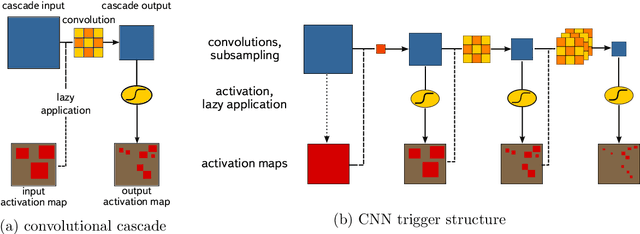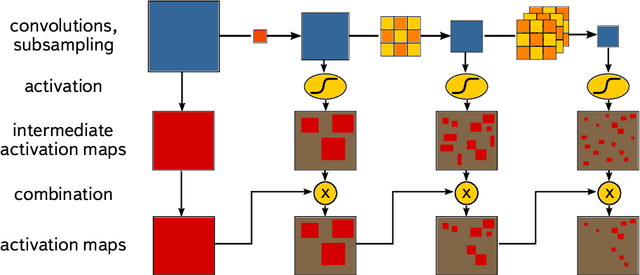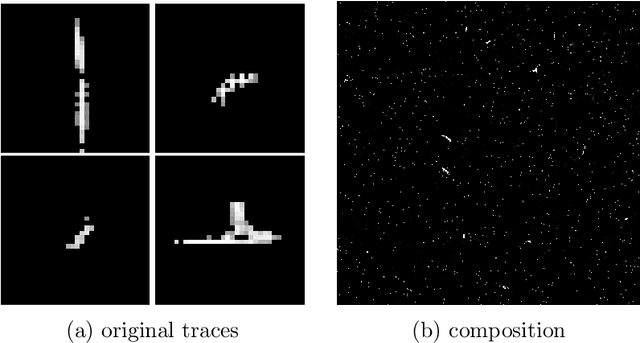Muon Trigger for Mobile Phones
Paper and Code
Sep 25, 2017



The CRAYFIS experiment proposes to use privately owned mobile phones as a ground detector array for Ultra High Energy Cosmic Rays. Upon interacting with Earth's atmosphere, these events produce extensive particle showers which can be detected by cameras on mobile phones. A typical shower contains minimally-ionizing particles such as muons. As these particles interact with CMOS image sensors, they may leave tracks of faintly-activated pixels that are sometimes hard to distinguish from random detector noise. Triggers that rely on the presence of very bright pixels within an image frame are not efficient in this case. We present a trigger algorithm based on Convolutional Neural Networks which selects images containing such tracks and are evaluated in a lazy manner: the response of each successive layer is computed only if activation of the current layer satisfies a continuation criterion. Usage of neural networks increases the sensitivity considerably comparable with image thresholding, while the lazy evaluation allows for execution of the trigger under the limited computational power of mobile phones.
 Add to Chrome
Add to Chrome Add to Firefox
Add to Firefox Add to Edge
Add to Edge